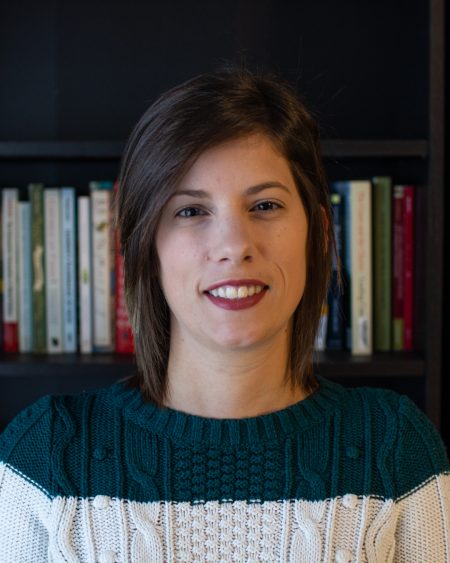Grad Research: Conditional Cash Program’s Effect on Gender Equality
The Sustainable Development Goals (SDGs) came into effect in 2016 with the aim of ending poverty and have an overarching theme of gender equality and women’s empowerment. This means that anti-poverty initiatives should be compatible with achieving gender equality and women’s empowerment. The SDGs are to be completed by 2030.
Conditional cash transfer programs (CCTs) are one anti-poverty strategy that has gained increasing attention and has been widely implemented by several countries. They give cash to poor households on the condition that enrolled households make certain pre-specified investments in the human capital of their children.

Kerry O’Neill, a PhD student in Ethics and Public Affairs is researching international development and the impacts these policies have on gender equality and women’s empowerment.
“I argue that unconditional cash transfers are superior to conditional cash transfers when it comes to ending poverty and achieving gender equality,” explained O’Neill. “If the international community is committed to achieving gender equality by 2030 then we should be promoting UCTs over CCTs.”
O’Neill’s dissertation answers the question of whether state programs that attach conditionalities to welfare benefits are justifiable and whether a move towards unconditional cash transfers are better suited to address poverty and gender inequality.
“CCTs are gendered in the way they are designed and implemented,” highlighted O’Neill. “CCTs are promoted as a way of reducing childhood poverty and its social impacts AND empowering women and girls. But CCTs have a number of very troubling impacts on gender equality. In many instances, these programs reinforce traditional gendered divisions of labour and are based on stereotypical views about what it means to be a woman or mother.”
Some of these issues O’Neill describes are: CCTs can violate a woman’s right to sexual and reproductive choices; CCTs contribute to economic growth but do so at the expense of the current and future well being of women; inadequate transfers may force some mothers to remove their children from school to gain an income, which violates the program conditions and puts the women at risk of losing the CCT altogether.
“I’m hoping my research will make an impact on the way we conduct public policy and force us to think critically about the gendered effects policies have,” expressed O’Neill. “This will, I hope, result in developing policies that challenge gendered divisions of labour and assumptions about the nature of women and mothers. We shouldn’t promote policies that perpetuate the subordinate status of women or use women instrumentally as doing so reinforces gender inequality.”
O’Neill said that, to overcome these issues, we must challenge existing gender norms and stereotypes and ensure that these views are not explicitly or implicitly reinforced in public policy as they can be detrimental to the status of women.
“Unfortunately, we live in a patriarchal world where men are presumed to be dominant over women,” said O’Neill. “Gender equality has not been achieved in any country. Studies suggest that it will take close to 82 years to close the gender gap in political participation, 95 years to achieve gender parity in lower secondary education, and 170 years to close the economic gap. This is deeply unsettling, but it is the reality of the current situation.”
Dr. Vida Panitch from the Department of Philosophy and Dr. Lisa Mills from the School of Public Policy and Administration have been supervising O’Neill throughout her research.
“They have both been a wealth of knowledge and resources for me,” noted O’Neill. “I am also grateful to Dr. Christine Koggel for being on my committee and offering her insights. The support of my committee has been crucial, especially in the writing process, and I am indebted to them for all their encouragement and guidance.”
O’Neill’s research has also been supported by the Social Sciences and Humanities Research Council of Canada and the Ontario Graduate Scholarship.
As for the future, O’Neill’s goal is to work towards a more gender-just world.
For more information about the PhD in Ehics and Public Affairs degree, click here.